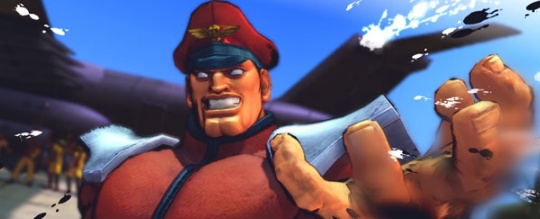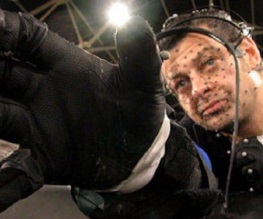Why Films From Games Will Never, Ever Work

There’s nothing quite as chilling to the blood of a dedicated gamer than the announcement that their favourite recreational shoot-em-up, FPS or RPG is to get the silver screen treatment. This is hardly surprising – the number of credible, watchable video game adaptations is, to put it bluntly, zero. They’re a vacuum of quality, a Hollywood niche that seems to revel in blindsiding audiences with Z-grade acting, production and scripting. The first, and arguably worst, offender was Super Mario Bros. starring Bob Hoskins, which turned the cheerful hop-on-the-fungus platformer into an incomprehensible cinematic war crime. Street Fighter, starring Lego-jawed scorn-magnet Jean-Claude Van Damme, will have you praying for death within thirty minutes – and not a swift, pleasant death either. Even Angelina Jolie’s hips couldn’t save Tomb Raider, and heck, that’s saying something. Like some sort of occult anti-alchemy, Hollywood starts off with gold and manages to turn it into something… well, something more base than lead, at any rate.
We can imagine, for instance, that there’s a good few people who are actually pretty relieved that the proposed Halo film is now languishing – probably indefinitely – in development hell. It’s had a good few hard-hitting names attached, with producer/director whispers including Steven Spielberg, Peter Jackson and District 9’s Neil Blomkamp. The writing duties have been similarly open-ended. Early scripts were penned by novelist-cum-screenwriter Alex Garland (who wrote 28 Days Later) and, having been subsequently rewritten to the satisfaction of precisely no-one, was dropped like a hot, shitty brick. Plucky Pirates of the Caribbean scribe Stuart Beattie then took it upon himself to whip out a spec script in his spare time which seemed to inject a shiver of hope, until one by one the prospective names attached to the project either fell away or outright distanced themselves. Neil Blomkamp now maintains he wouldn’t do the project even if it was offered to him, and Microsoft’s fingers – if reports are to be believed – have had their tips badly burned by the interaction with studio bods. The latest news on the project came from a representative of Microsoft who stated that choosing a partner to help develop the movie was ‘a quality control issue’. Which says it all, really.
So much for the production side. But what about the intended audience? Considering past performance, you can hardly blame gamers for their natural suspicion, but the more vocal portions of fandom aren’t exactly smoothing the path. Bleating and whiny it may be, but it’s a voice that the producers will inevitably listen to – this is the demographic that could make or break a project, after all. The problem here stems from the fact that there’s a huge sense of ownership over the titles. A website dedicated to the minutiae of the upcoming Gears of War film (also scripted by Beattie) actively “supports the project”, but with the bizarre caveat that they’re doing so on the understanding that “it doesn’t turn into a terrible Hollywood betrayal”.
Betrayal, eh? Spending your time staring at a flat screen TV and shredding aliens with exotic weaponry evidently skews your sense of perspective. It’s difficult to sympathize with some pasty geek with an overblown sense of entitlement, and as a bunch of pasty geeks with an overblown sense of entitlement, we feel justified in saying that. But that, perhaps, is the nature of contemporary gaming: the medium has become so sophisticated and immersive that the player can’t help but feel personally invested. If you’ve single-handedly beaten off the Locust horde on the ‘Insane’ difficulty setting, then the active engagement becomes more than just entertainment – in essence, you’re an actor. The face on the screen might not be yours, but the reflexes and problem-solving abilities sure are. You’re the one giving the fight to the soldiers – the soul, if you will, to the software.
This kind of vivid, almost hallucinatory interaction is the real magic of gaming, and it’s something that can only be achieved with the very best the medium can offer – Half-Life 2, Halo, BioShock and Call of Duty 4 instantly spring to mind. All of these releases have interesting, original plots, compelling and likeable characters and innovative writing and design. Which is (would you believe it?) pretty much exactly what an intelligent cinemagoer expects of a decent film.
This is, of course, the real issue here. Making a film from Super Mario Bros. is problematic from the off because of the arbitrary nature of the source material. When developing early games, plot was ancillary to the gameplay and often dictated by the limits of the system. Mario was a plumber because overalls were easier to draw and animate on the NES, and yeah, we’ll chuck him up against some… mushrooms! Mushrooms work. And turtles! Kids love turtles. Chuck them in. What’s that? What gives him the ability to throw fire? Why, a flower! ‘Cause flowers, y’know… can do that to a man. Contemporary games are developed so savvily that now, when immersed mid-play, you’re often as interested in seeing how the story concludes as you are in sharpening your skills for the challenge of the final boss.
You’d think that as video games become increasingly cinematic the barriers between the source material and a successful screen adaptation would shrink. FMV cinematics could become rough storyboards, scripts could be lifted straight from development, tone and design are already pretty much sorted. Yet filmmakers will always approach an adaptation from a commercial standpoint, and they’re ultimately faced with the unenviable task of pleasing both Joe Q. Public and Jim T. Gamer. The former will probably be uninterested to begin with and the latter’s already slathering at the mouth to trash an adaptation on the forums for not conforming to a precise, personal and indoctrinated vision.
If there is a future in cinematic adaptations of video games, it lies in Hollywood realising that simply transplanting a computer game to the silver screen won’t ever work. Watching a film won’t give us the chance to plan and execute a military attack with precision, or convince an improbably-breasted Space Pixie to fall in love with us – games have the ultimate Top Trump of interactivity. What Hollywood needs to do is develop film franchises that have been tried and tested with gamers. A slavish retelling of the plot of Halo would, in all likelihood, be pretty dull, but a film that inhabits the same epic, space-opera milieu might just work. It’s the kind of environment in which different, and equally interesting, stories can be told. That way, a gamer’s treasured imaginings remain unsullied and the general public won’t be totally alienated if they haven’t played the game.
Peter Jackson made an interesting comment about the abortive Halo project: he mentioned in an interview that if any company had the financial clout to develop a film independently, it’s Microsoft. Game developers tightly controlling all aspects of franchise output may well be the future, but they’ll still need the backing of distributors to succeed. The incompatibility of the two mediums are painfully obvious to anyone who only made it through the Mortal Kombat movie by chewing on a leather belt. If, and it’s a big, big if, a successful video game adaptation is ever released, it’ll have to be on the understanding that the strengths of gaming are the strengths of gaming alone. Hollywood has to respond with something original, intuitive and beyond the reach of the game. Otherwise, we’ll just end up with more films like Super Mario Bros., and quite frankly, as a lover of gaming, film and Dennis Hopper’s career, we’re not going to stand by and let that happen.





Recent Comments